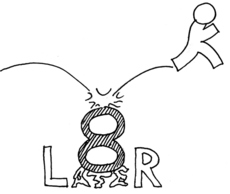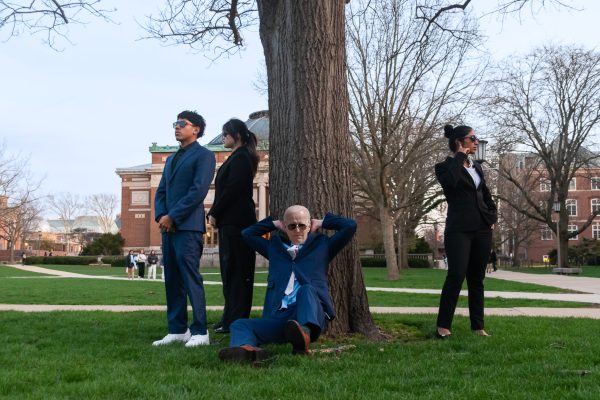LOL, or the tragicomedic plight of standard English language and the World Wide Web

Joseph Lamberson
January 25, 2007
On an average day, I go through about 30 e-mails, 10 text messages, 15 blogs, and seven streaming videos. I click on at least 100 links a day, easily. I primarily talk to busy friends by sending them instant messages so we can all quietly continue to roam the bowels of the Internet in search of, well, whatever we want. But with the convenience of all this technology and with information accessible these days more and more from a palm pilot, smart phone or whatever else it is that fits in your hand, there brews a dangerous trend. Somehow in the midst of all this wealth of knowledge, students and educators alike are beginning to think that “Internet” and “text” speak is acceptable in all forms of writing.
This year, New Zealand has instituted a policy which would allow high school students to use “text speak” on national exams, being able to replace words like “to” with “2” and words like “late” with “l8.” The Pew Research center shows that most teens with cell phones text message and almost half of teens online prefer to instant message over e-mail. Shorthand, in a world of texting and “IMing,” English words becomes second nature. Journalists at the University of Delaware have shown that while many students still use full English words on their term papers and other exams, the texting and instant messaging habits are bleeding through. At first it appears in e-mails to professors, then in shorter or more informal assignments. It is possible that in 10 years, “text speak” will replace written standard English for many of us.
Sure, this trend can be welcomed. Many advocates of such policies see the natural evolution of language as inevitable and with the onset of technology, this evolution will certainly be technology-based. But at what cost? If every term paper, final and exam “iz writn lk dis,” how will any of our children read our most beloved authors like we read them? Will “Hamlet” have to be translated into “Shkspr’s Hmlt”? Will Kurt Vonnegut’s brilliant “Slaughterhouse Five” become “sltrhs5?” I dread the day when I will have to learn another language to read my favorite novels.
The English language is, as of today, the most powerful and commanding language on Earth. To learn it means to have instant access to the most information, opportunity, money and privilege in the world. It has existed in its current form for about 600 years and began to be used as it is today around the time of Shakespeare. Scores of poets, novelists and essayists have explored the versatility and accessibility of the language and English literature of one of the richest literary traditions in the world, particularly in the twentieth century.
The argument that we should make way for convenience and speed in language over established tenets like we do in economics and manufacturing is flawed. First of all, while there may be some reason to pursue expediency in texting and “IMing,” this does not logically imply that the habitual use of this language is acceptable in academic, literary or formal contexts. I, for one, see no reason to write “u” instead of “you” in an instant message. It’s two more letters, each of which takes about a quarter of a second to type. We all have an extra half second to spare to preserve the sanctity of English. But even if we don’t, we should leave our poor professors and graders out of it.
Get The Daily Illini in your inbox!
While New Zealand officials believe that allowing “textspeak” on national exams will allow students an efficiency they never had before, the truth is that this policy will exacerbate the increasing presence of sub-par English in a generation that already has problems spelling without spellcheck.
Perhaps they should have considered just adding a little more time to the exams.





